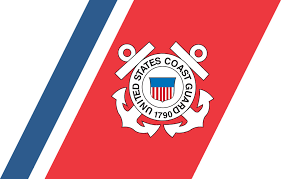Vessels calling on US Ports must meet IMO Requirements that limit the sulphur content of the fuel oil to 0.10%.
Historically, vessel that have been unable to obtain compliant fuel oil were required to file a Fuel Oil Non-Availability Report (FONAR) with the US EPA.
Effective June 30, 2019 the EPA stopped accepting FONARs.
Vessels now must report the use of non-compliant fuel to the cognizant USCG COTP.
The attached USCG HQ Marine Safety Information Bulletin (MSIB) provides detailed instructions.
Quote
“There is no specific format* for the notification; however, consistent with MARPOL Annex VI, Regulation 18.2.1, the ship owner or operator should be prepared to present a record of the actions taken to achieve compliance, including evidence that they attempted to purchase compliant fuel oil in accordance with the vessel’s voyage plan.”
*There is no specific format at this time for a FONAR. Until the International Maritime Organization (IMO) adopts one, it is suggested ships use the format provided in the Annex to PPR 6/8/2 (“Consistent Implementation of Regulation 14.1.3 of MARPOL Annex VI: Proposed Template to report compliant fuel oil non-availability”). NOTE: LAMA has attached that format to the MSIB for your convenience.
NEW PROCEDURE FOR SHIPPING INDUSTRY TO NOTIFY THE US GOVERNMENT OF NON AVAILABILITY OF COMPLIANT FUEL OIL
USCG HQ MSIB_005_19-2 Change in FONAR Reporting.pdf
- Effective immediately, owners and operators of vessels operating in the North American (NA) or U.S. Caribbean Sea Emission Control Area (ECA) that are unable to acquire sufficient MARPOL Annex VI compliant fuel oil at a foreign or U.S. port may satisfy the MARPOL Annex VI Regulation 18.2.4 requirement to notify the competent authority of the relevant port of destination by notifying the cognizant U.S. Coast Guard Captain of the Port (COTP). Effective June 30, 2019, the U.S. Environmental Protection Agency (EPA) will stop accepting Fuel Oil Non-Availability Reports (FONARs).
- Failure to make the notifications required by MARPOL Annex VI, 18.2.4 may result in a vessel control (e.g., detention) and/or enforcement action.
- There is no specific format* for the notification; however, consistent with MARPOL Annex VI, Regulation 18.2.1, the ship owner or operator should be prepared to present a record of the actions taken to achieve compliance, including evidence that they attempted to purchase compliant fuel oil in accordance with thevessel’s voyage plan.
- The U.S. Coast Guard will investigate all reports of non-compliance with MARPOL Annex VI to determine what actions may be warranted. Such actions may range from completing the investigation with no follow- on action, detaining the vessel, and/or pursuing civil penalties. The Coast Guard may also refer the matter to EPA.
- Ship owners and operators are reminded that the sulfur content of any fuel oil used onboard ships within the NA or U.S. Caribbean Sea ECAs will not change when the worldwide sulfur cap is reduced on January 1, 2020.
- The information herein is not a substitute for applicable legal requirements, nor is it itself a rule. It is not intended to nor does it impose legally binding requirements on any party. It represents the Coast Guard’scurrent thinking on this topic and may assist industry, mariners, the general public, and the Coast Guard, as well as other federal and state regulators, in applying statutory and regulatory requirements. You can use an alternative approach for complying with these requirements if the approach satisfies the requirements of the applicable statutes and regulations. If you want to discuss an alternative approach (you are not required to do so), you may contact Office of Commercial Vessel Compliance, (CG-CVC) by email at cgcvc@uscg.mil.
* There is no specific format at this time for a FONAR. Until the International Maritime Organization (IMO) adopts one, it is suggested ships use the format provided in the Annex to PPR 6/8/2 (“Consistent Implementation of Regulation 14.1.3 of MARPOL Annex VI: Proposed Template to report compliant fuel oil non-availability”).
Background
1 At MEPC 71, the Committee approved the scope of work on “Consistent implementation of regulation 14.1.3 of MARPOL Annex VI” as follows:
- preparatory and transitional issues;
- impact on fuel and machinery systems;
- verification issues and control mechanisms and actions;
- development of a draft standard format (a standardized system) for reporting fuel oil non-availability;
- development of guidance, as appropriate, that may assist Member States and stakeholders
- request to ISO to consider the framework of ISO 8217;
- any consequential regulatory amendments and/or guidelines; and
- safety implications relating to the option of blending fuels.
Development of a draft standard format (a standardized system) for reporting fuel oil non-availability
2 In the case of ships which are unable to secure fuel oil meeting the requirements of regulations 14.1.3 and 14.4.3 of MARPOL Annex VI, the draft standard report form is proposed in the annex of this document in relation to the reporting of non-availability of fuel oil stipulated in regulation 18.2.4 that may be used to be provided as evidence.
3 In drafting the standard report format, the ICS (International Chamber of Shipping) template of compliant fuel oil non-availability report for sulphur emission control areas (ECAs) was used. The report format is to be sent to the port authority of destination with a copy to be sent to the flag Administration in accordance with regulation 18.2.4 of MARPOL Annex VI.
Action requested of the Sub-Committee
4 The Sub-Committee is invited to take the annex of this document into consideration and take action as appropriate.



